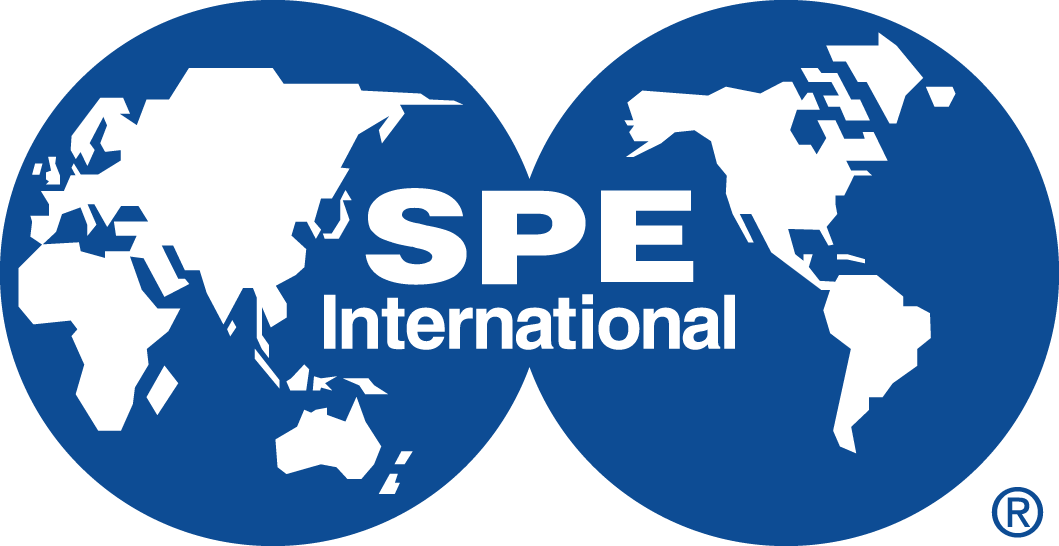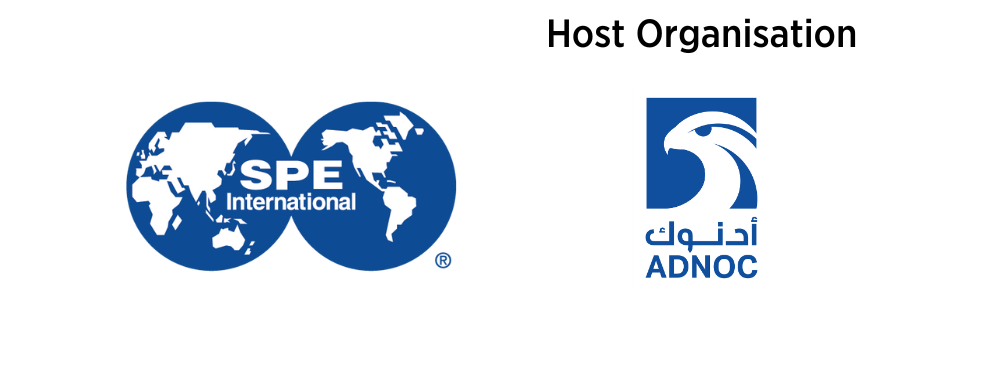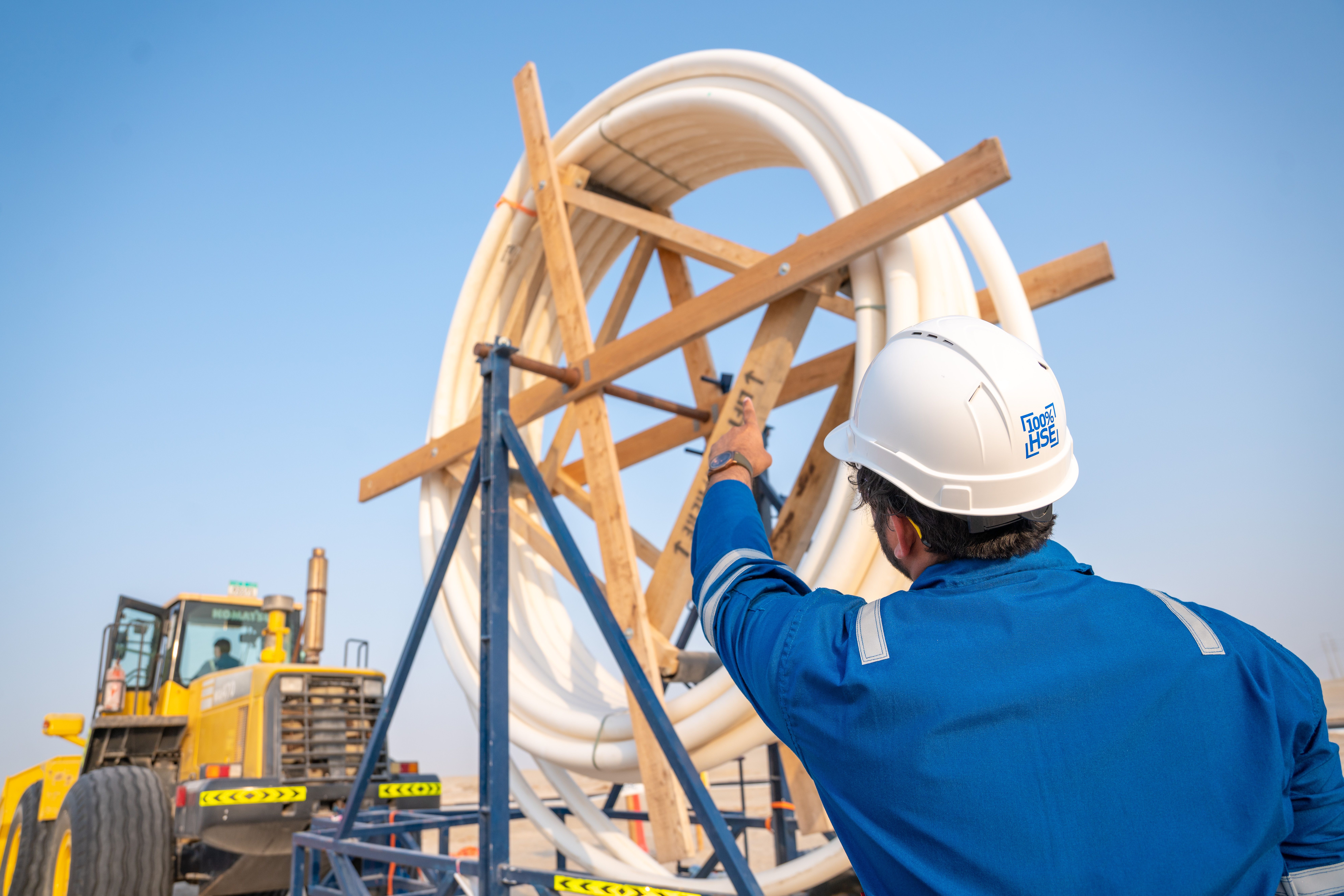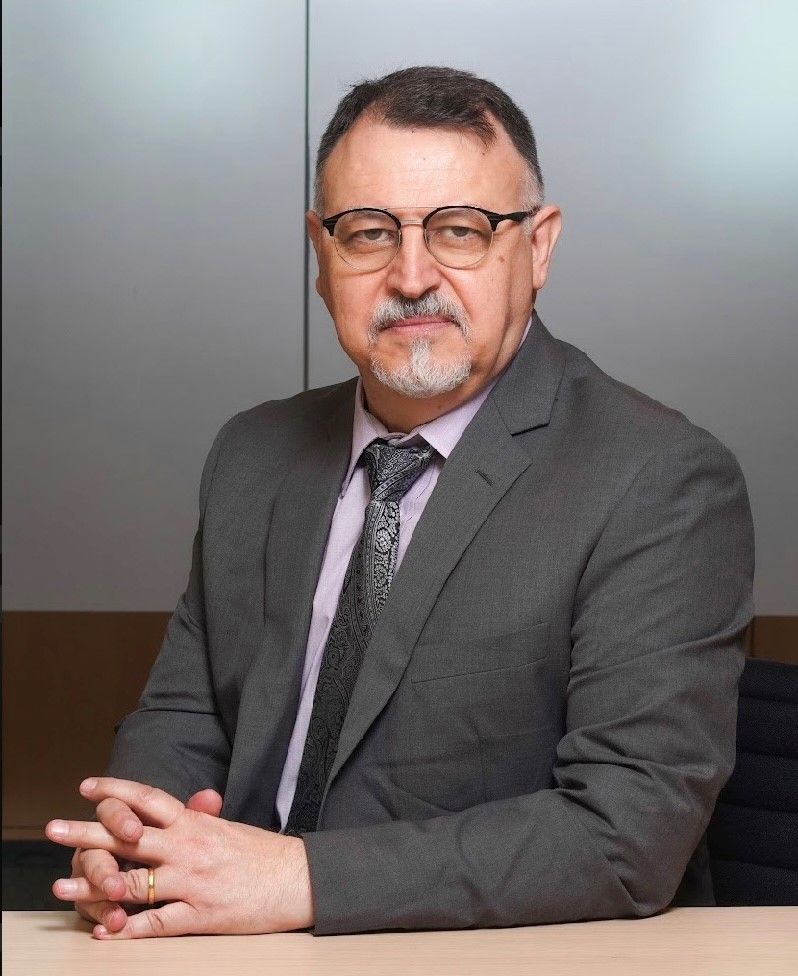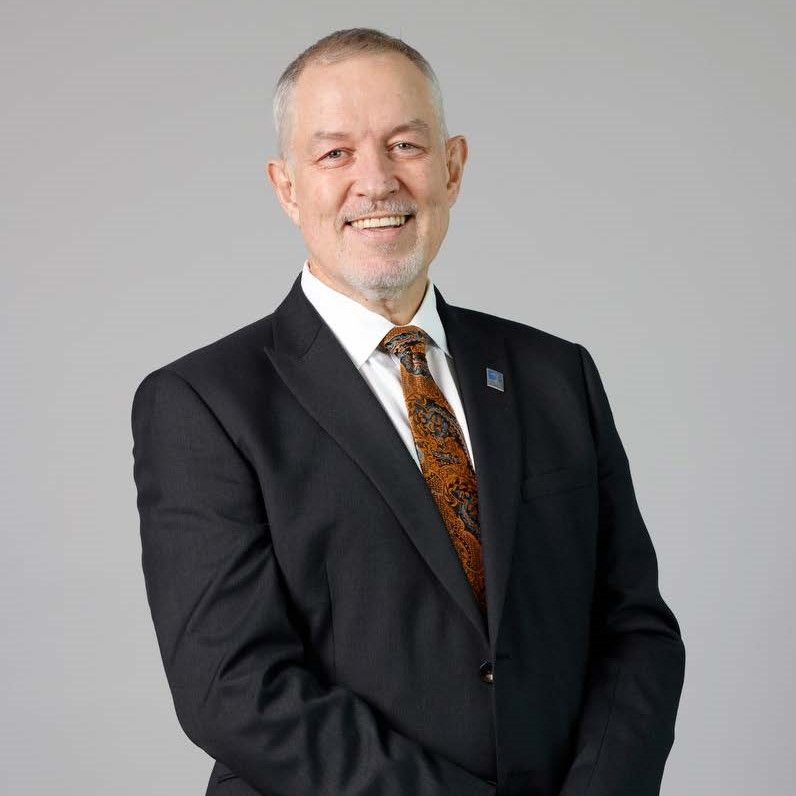Symposium Agenda
-
30 mins
-
SPE Studio - Al Gurm Ballroom30 mins
-
30 mins
-
Discovery Pod 1 - Al Gurm Ballroom60 mins
The transition to sustainable energy systems is crucial for addressing the global challenge of climate change, with non-metallics playing an increasing role in the development of low-carbon technologies. Non-metallics, such as polymers, ceramics, and composites, offer versatile alternatives to metals in various energy applications due to their lightweight, corrosion-resistant, and insulating properties. These materials are being utilized across the renewable energy spectrum, from wind turbines and solar panels to energy storage systems and hydrogen production.
This session highlights the significance of non-metallic materials as enablers of energy transition ecosystems. Their unique properties and growing integration into low carbon energy systems present an opportunity to accelerate the global shift towards sustainable energy while addressing material property issues and also addressing the environmental impacts. The ongoing research and development of non-metallic materials will continue to shape the future of energy systems, offering innovative solutions to the challenges of the energy transition.
Call For Speakers / Abstracts Topics:
- High pressure non-metallic pipelines for transport of CO2
- Use of Composite non-metallic pipelines for the H2 network
- Challenges facing non-metallics within the energy transition
- Use of non-metallics within the H2 infrastrucutre
-
Discovery Pod 2 - Al Gurm Ballroom60 mins
Non-metallic materials play a crucial role in various industrial ecosystems. The manufacturing of non-metallic products encompasses essential aspects throughout manufacturing process, influencing product quality, operational efficiency, and market requirements.
The industrial ecosystem for the non-metallic industry is multifaceted as well, with various interconnected elements that influence its development, production, evolution, growth and market dynamics. Engaging and addressing these discussions can lead to advancements in technology, improved practices, enhanced product offerings, and enable greater market acceptance of non-metallic solutions across several industries.
The focus of this session is to create awareness related to non-metallics manufacturing, quality assurance and effective supply chain management that are critical for mitigating risks and ensuring high quality products. By implementing robust manufacturing practices, quality control processes, strategic sourcing, optimizing handling procedures, and enhancing logistical planning, manufacturers and transporters can significantly reduce the likelihood of issues, reliability and performance of non-metallic products while navigating the core challenges of the industry.
We are eager to hear the valuable experiences and expert advices of our partners, manufacturers, suppliers to boost the market growth and deployment of non-metallic materials in the spectrum of applications. The topics could cover the following
Call For Speakers/Abstracts Topics:
- Manufacturing Processes: Exploring non-metallics manufacturing, production techniques, and quality control to enhance efficiency and product reliability, quality management systems,
- Supply Chain Management: Emphasizing effective supplier relationships, inventory optimization, and logistical planning to mitigate risks and improve delivery, discussion on requirements for transporting.
- Market Dynamics: Understanding the evolving industrial ecosystem that influences non-metallic product development and acceptance, fostering collaboration among stakeholders, examination of key players in the market.
- Quality Assurance: Implementing robust practices to ensure product quality and compliance with industry standards, overview of industry regulations and standards (e.g., ASTM, ISO) affecting manufacturing and usage, required audits and inspection, compliance and documentation, acceptance criteria.
- Sustainability Initiatives: Focusing on eco-friendly manufacturing practices to reduce environmental impact, life cycle assessment from production to disposal, and exploring initiatives and strategies to enhance the sustainability aspect of utilizing non-metallic products in the related industries.
-
Al Gurm Ballroom30 mins
-
60 mins
This session aims to provide in-depth discussions about short term and long-term properties of polymers and their composites used in non-metallic applications, such as and not limited to thermoplastics such as HDPE, PA, PPS, PVDF and PEEK, and thermoset materials, plus resin combinations with composite materials. It will involve chemical, physical and mechanical properties, how they change over time once exposed to chemical/hydrocarbon mixtures containing medium, permeation of H2, HS2, CH4, H2O and others through them, long term hydrostatic pressure rating, creep phenomena, advances in production processes and its effect on properties that are relevant to non-metallic applications. It will also discuss advanced test methods used to measure critical engineering properties as well as reliability of these test methods, which are critical to enabling confidence in the substitution on non-metallics vs steel, or in fact to enhancement of steel applications through the unique corrosion and permeation resistance of polymers. Furthermore, it will include how modelling and simulation tools can help non-metallic pipeline designers to simulate polymer and final non-metallic product behaviour in real case scenarios.
Call For Speakers/Abstracts Topics:
- Advanced test methods to better understand polymer properties for non-metallic applications
- Alternative ways to predict long term mechanical strength of polymer in non-metallic products
- Material selection for the application in various media, including new material innovations
- Updates in standards and codes related to polymers products in non-metallic applications
- Evaluation of polymer material properties under hydrocarbon, CO2, H2S, and H2 exposure
-
Discovery Pod 2 - Al Gurm Ballroom60 mins
-
Al Gurm Ballroom60 mins
-
60 mins
In an era of increasing environmental challenges and energy demands, the resilience of energy infrastructures is paramount. This panel will explore innovative approaches in nonmetallic materials that enhance the durability and adaptability of energy systems. Experts will discuss case studies, technological advancements, and strategic frameworks essential for building robust energy infrastructures capable of withstanding future uncertainties.
-
60 mins
-
Al Gurm Ballroom60 mins
-
SPE Studio - Al Gurm Ballroom30 mins
-
SPE Studio - Al Gurm Ballroom30 mins
-
Al Gurm Ballroom30 mins
-
Discovery Pod 1 - Al Gurm Ballroom60 mins
This interactive session aims to address the evolving landscape of the energy sector by focusing on localizing industry capabilities. It will explore future needs, innovative applications, and emerging opportunities within the energy industry, emphasizing the importance of in-country value creation. Participants will engage with industry leaders and experts to discuss strategies for fostering local talent, leveraging technological advancements, and building sustainable, resilient energy infrastructures.
-
Discovery Pod 2 - Al Gurm Ballroom60 mins
-
30 mins
-
Discovery Pod 1 - Al Gurm Ballroom60 mins
As the oil and gas industry continues to push boundaries of efficiency and sustainability, innovative materials and technologies have emerged to transform traditional practices. One such area gaining attention is the application of non-metallic composite tubulars in downhole well drilling and workover operations. This session invites experts from academia, research institutions, and industry leaders to present their latest findings, experiences, and insights into the development, testing, and deployment of these game-changing solutions.
Non-metallic composites offer significant advantages over conventional steel pipes, including reduced weight, increased corrosion resistance, improved durability, and enhanced thermal insulation properties. These benefits can lead to substantial cost savings, extended equipment lifespan, and minimized environmental impact. However, challenges remain in scaling up production, ensuring compatibility with existing infrastructure, and addressing regulatory hurdles.
This session aims to address these gaps through presentations that highlight recent advances, field trials, case studies, and lessons learned in applying non-metallic composite tubulars across various aspects of downhole operations, including but not limited to:
- Materials science and engineering innovations
- Manufacturing processes and scalability
- Performance evaluation under extreme conditions (e.g., high pressure, temperature)
- Corrosion behavior and degradation mechanisms
- Compatibility assessments with cementing systems, packers, and other completion components
- Field trial results and real-world implementations
- Regulatory frameworks and standards updates
Attendees will gain valuable knowledge on the current state-of-the-art, future directions, and collaborative opportunities driving this transformative technology forward.
Call For Speaker/Abstracts Topics:
1- Materials Science Innovations
- Development of novel polymer matrixes, reinforcement fibers, and hybrid materials
- Advanced manufacturing techniques (3D printing, automated layup) for large-diameter composite tubes
2. Performance Evaluation Under Extreme Conditions
- High-pressure and high-temperature testing protocols and outcomes
- Fatigue life assessment methodologies and simulation tools
- Impact of corrosive fluids on composite material integrity
3. Compatibility Assessments and Integration Challenges
- Cement-composite interface bonding strength investigations
- Effects of curing times, temperatures, and pressures on bond performance
- Case studies highlighting successful integration strategies
4. Field Trials and Real-World Implementations
- Lessons learned from pilot projects and commercial deployments
- Comparison of actual vs. predicted performance metrics (cost savings, reduced downtime)
5. Regulatory Frameworks and Standards Updates
- Current regulations governing use of non-metallic composites in wells
- Emerging guidelines and recommended practices for safe handling and installation
6. Economic Analysis and Life Cycle Assessment
- Cost-benefit analysis comparing composite tubulars to traditional metal-based solutions
- Environmental footprint evaluations considering raw materials sourcing, energy consumption, and end-of-life disposal
7. Challenges and Future Directions
- Addressing scale-up issues and supply chain constraints
- Overcoming perceived barriers to adoption among operators and service providers
Please submit an abstract outlining your proposed presentation's focus, methodology, key findings, and conclusions.
-
60 mins
This session will explore the critical aspects of integrity management, inspection, and testing for non-metallic systems. As industries increasingly adopt non-metallic solutions for their efficiency, sustainability, and performance benefits, ensuring their long-term reliability and safety is paramount. The session will focus on a holistic approach to managing the lifecycle of non-metallic materials, emphasizing cutting-edge inspection techniques and testing methodologies. Additionally, it will cover fire engineering considerations, providing insights into designing and implementing fire-resistant strategies during the transition to non-metallic systems in industries such as oil and gas, construction, and transportation. Attendees will gain a deep understanding of how to maintain the structural integrity of these materials, the impact of environmental factors, and best practices for compliance and safety.
We invite industry experts, researchers, and practitioners to present on the following topics related to non-metallic systems:- Advanced techniques for inspecting and testing non-metallic materials.
- Best practices for integrity management in non-metallic systems across critical industries.
- Fire engineering solutions and innovations for non-metallic materials.
- Case studies on transitioning from metallic to non-metallic systems and managing associated risks.
- Compliance challenges and regulatory perspectives regarding non-metallic material adoption.
-
60 mins
-
60 mins
Composite pipes, made from a combination of materials such as polymers and metals, offer a range of advantages over traditional pipe materials. However, they also face challenges in their adoption. Some current challenges and opportunities for their use include: Cost of Production, Compatibility Issues, Mechanical Properties, Regulatory Standards, Installation Techniques, Long-term Performance, Permeation, High temperature/High pressure applications, Inspection and asset integrity.
Use of novel approaches such as AI that can significantly enhance the inspection of composite materials in various industries, including aerospace, automotive, and manufacturing. AI could help with Defect Detection, Data Analysis, Automated Inspection, Quality Control, Enhanced Imaging Techniques, Integration with IoT as well as Training and Simulation.
We invite industry experts, researchers, and practitioners to present on the following topics related to:
- Deployment challenges of Non-metallics for high temperature, high pressure (HT/HP) and permeation prone applications
- Development of advanced composite materials to meet the ever demanding challenges
- Use of advanced technologies and AI to meet the current challenges and facilitate faster deployment of non-metallics
-
60 mins
Non-metallic materials including composites are widely used in various applications due to their lightweight, corrosion resistance, and insulating properties. They have found applications in many industries including Oil and Gas (transporting crude oil, natural gas, and refined products due to their resistance to corrosive substances and high-pressure environments), water and wastewater (potable water systems, sewage transport, and treatment facilities, as they can withstand harsh chemicals and do not corrode), chemical processing (transporting chemicals, acids, and solvents, as they resist chemical degradation), mining (slurry transport, where the composite's strength and resistance to wear are beneficial), HVAC Systems (heating, ventilation, and air conditioning systems for chilled water and hot water applications), marine (shipbuilding and offshore platforms, as they resist saltwater corrosion) and industrial applications (transport of fluids, gases, or slurries).
Installation of non-metallics piping system demands good understanding of international standards and adhering to manufacturers specifications when it comes to preparation, cutting and shaping, joining techniques, installation and finishing. Considerations such as jointing methods, support and anchoring, thermal expansion, bending radius, surface preparation, pressure testing and regulatory compliance, must be closely scrutinised and best practices adhered to.
Composite pipes are versatile and increasingly favoured in various sectors for their performance and longevity. Proper installation practices ensure their effectiveness and reliability in diverse applications.
We invite industry experts, researchers, and practitioners to present on the following topics related to
- Advancement in joining technologies for composite pipes
- Installation Quality Control considerations from delivery to deployment
- Best practices for mitigation of failures and repair methodologies for composite pipes and structures.
- The need for development of internationally recognised training and certification
-
Discovery Pod 2 - Al Gurm Ballroom60 mins
This session will explore advancements in non-metallic products, focusing on their role in building resilient energy infrastructures. Topics will include how additive manufacturing enables customized, cost-effective components, while computational modeling and simulation optimize design and analysis of non-metallic components for enhanced performance. Machine learning applications in predictive maintenance and performance analysis will also be discussed, alongside the use of digital twins for real-time monitoring and lifecycle management. The session aims to demonstrate how these innovative methods and tools are transforming non-metallic technologies, enhancing safety, reliability, and sustainability in the energy sector.
We invite industry experts, researchers, and professionals to submit abstracts on the following topics/ Call For Speakers Topics:
- Additive Manufacturing for Non-Metallic Components
- Finite Element Analysis and Simulation
- Multiphysics Computational Modelling for Non-Metallics
- Machine Learning in Non-Metallic Materials
- Digital Twins for Non-Metallic Infrastructure
- Emerging Trends in Non-Metallics for Energy Applications
-
Al Gurm Ballroom30 mins
-
60 mins
